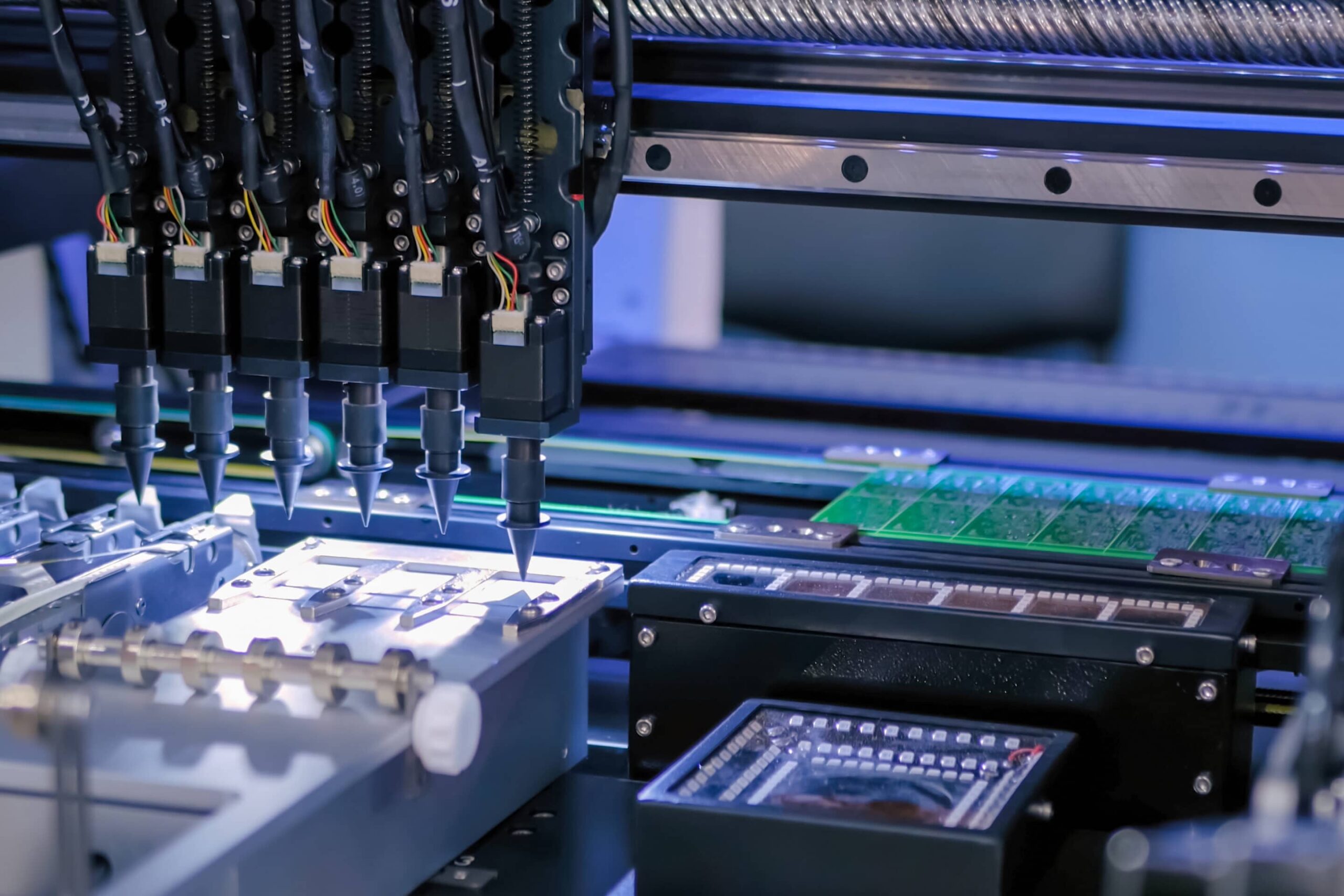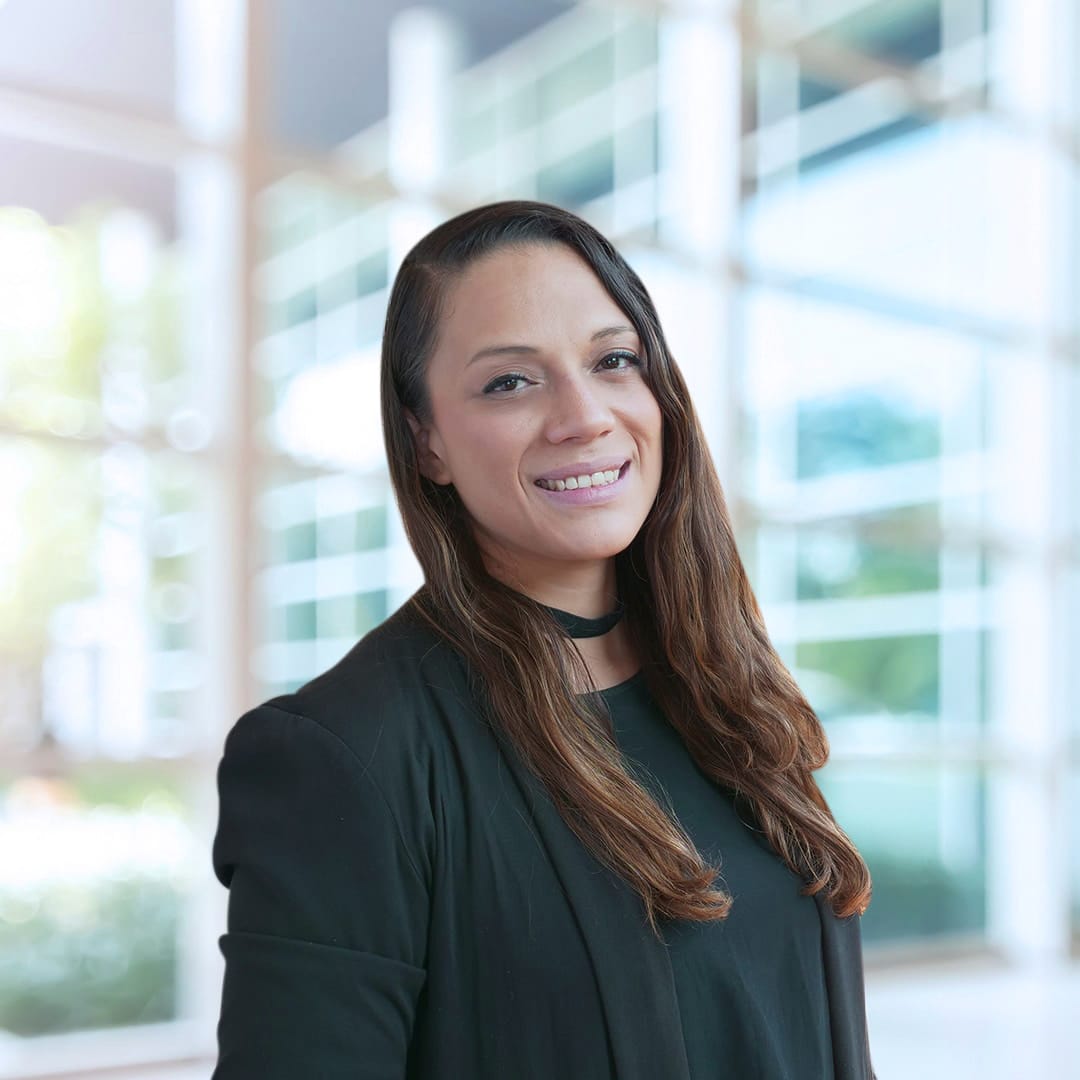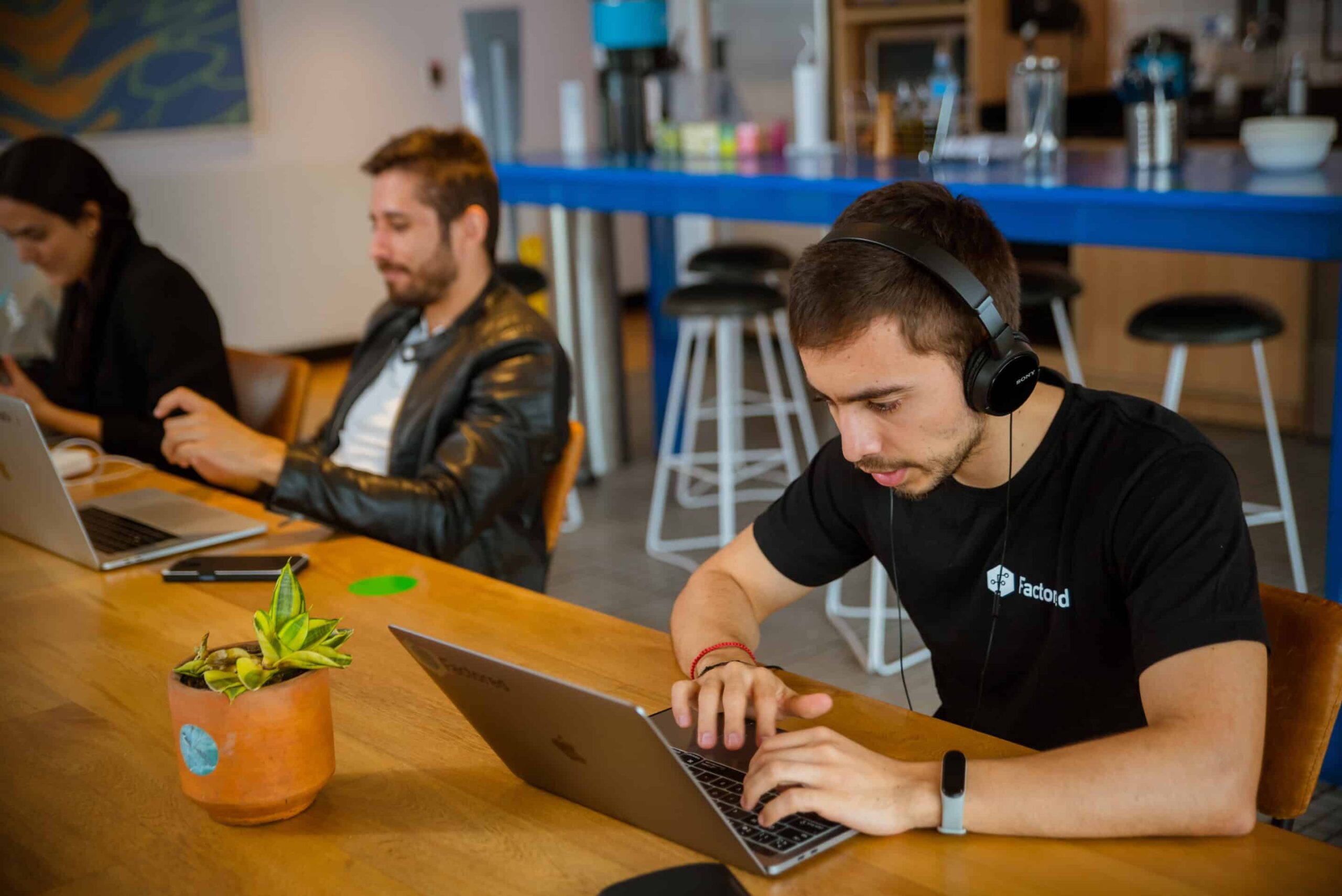
AI is changing the world, but not nearly as fast as it could. There is a huge shortage of qualified machine learning engineers and data scientists. Currently the global ratio of AI talent demand to supply is about 5:1 and demand is forecast to radically grow and continue far outpacing the amount of new engineers universities can mint annually.
Enter Israel Niezen, CEO and co-founder of Factored. Created to help address the significant shortage of qualified AI, machine learning, and data engineers globally, Factored helps companies select, train, and build world-class data-science and machine learning teams.
Israel has held leadership roles in startups and tech companies across both the U.S. and Latin America and holds an MBA from Harvard Business School.
This conversation has been edited for length and clarity.
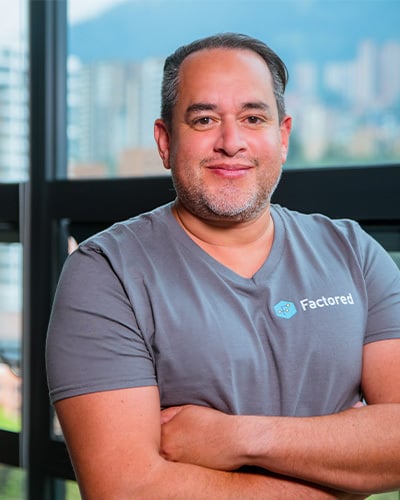
Israel Niezen, CEO and co-founder of Factored
AI Fund: Why did you co-found Factored?
Israel Niezen: For most of my career in tech, I’ve been on the business side. A few years ago, I had an epiphany and realized I didn’t want to be the typical MBA type who didn’t understand technology, so I started learning to code. That led to learning Python and applied machine learning, where I ran into Andrew’s courses. By serendipity, or fate, I read that the AI Fund was in the early stages of building a company that combined not just my interest in ML, but also my business experience, and lifelong passion for helping Latin America develop beyond natural resources.
It wasn’t yet a full-fledged company at that point. It was still a hypothesis based around training engineers and placing them with clients to do basic data science work. After listening to the market, we realized that positioning the company as a training school was very limiting as there was a lower perception of “bootcamp” programs at the time. Our advanced training program was very different, as it was focused on advanced practitioners, real-world production and deployment-level machine learning, and resulted in high levels of proficiency.
More importantly, we and our client companies quickly realized that the quality of our engineers in LATAM was on par, and sometimes above the average for Silicon Valley engineers, and they were capable of solving very complex problems in industries like Fintech and Telecommunications, where we landed our first customers. We rebranded the company as Factored, pivoted away from the training emphasis in our marketing, and refocused around the high caliber excellence of our engineers and the rigor of our technical vetting. For every cohort we bring on, the acceptance rate is around 2-3% so it’s actually harder to get into Factored than some Ivy League universities.
AIF: Why the name Factored?
IN: In mathematics, a factor is a combination of numbers that when multiplied together form a greater joint result and product. Our engineers are factors that work together and multiply to produce greater results on behalf of our clients and communities.
AIF: Who do you serve?
IN: It is increasingly difficult in Silicon Valley—and the rest of the U.S.—to hire and retain high-caliber engineers, especially if you’re not a FAANG company. This shortage of qualified engineers delays projects, delays revenue initiatives, and prevents businesses from growing.
We solve that problem by giving U.S. companies access to some of the most brilliant engineers and analysts in the world. They just happen to be outside of Silicon Valley, but are still in U.S. time zones. We solve complex data science problems for a wide range of industries like Fintech, insurance, mobile telecommunications, healthcare, retail, manufacturing, consumer marketing, transportation/logistics, and a few others. Factored can adequately serve any company that’s growing their AI capabilities by providing them data scientists, machine learning engineers, data engineers, and data analysts. That’s where we specialize and where we can provide the highest quality and most rigorously-vetted talent anywhere.
In addition to building a great company, this is also an important personal mission. Almost 20 years ago, I laid out a dream in grad school application essays to build a company that provides leading tech career opportunities to talented Latin Americans. As an immigrant from South America who has been lucky to succeed in the tech industry, I know LATAM is a hotbed for talent and we can show the world that we can export much more than bananas, potatoes, and coffee. We are now exporting some of the most advanced AI and data science solutions for our clients via the work of brilliant minds at Factored every day.
Thanks to the unwavering passion our engineers have for their craft and for STEM education, our team of engineers regularly seek out opportunities to teach and mentor young, aspiring engineers to help hone their skills. What’s more, for every high-salary engineer that we hire in Latin America, economic studies show that 4-5 other jobs also get created in local communities, stimulating further growth for the region, and showing new generations the transformative power of technology as a great equalizer.
So, yes, we also measure the positive impact we’re creating in our communities and the world. In addition to our efforts in Latin America, we help leading companies in the U.S. accelerate the growth of their teams with brilliant and passionate engineers. These engineers, with highly specialized skills in data science and AI, are in dire shortage in the U.S., and most companies rarely have access to this caliber of engineers outside of FAANG companies.
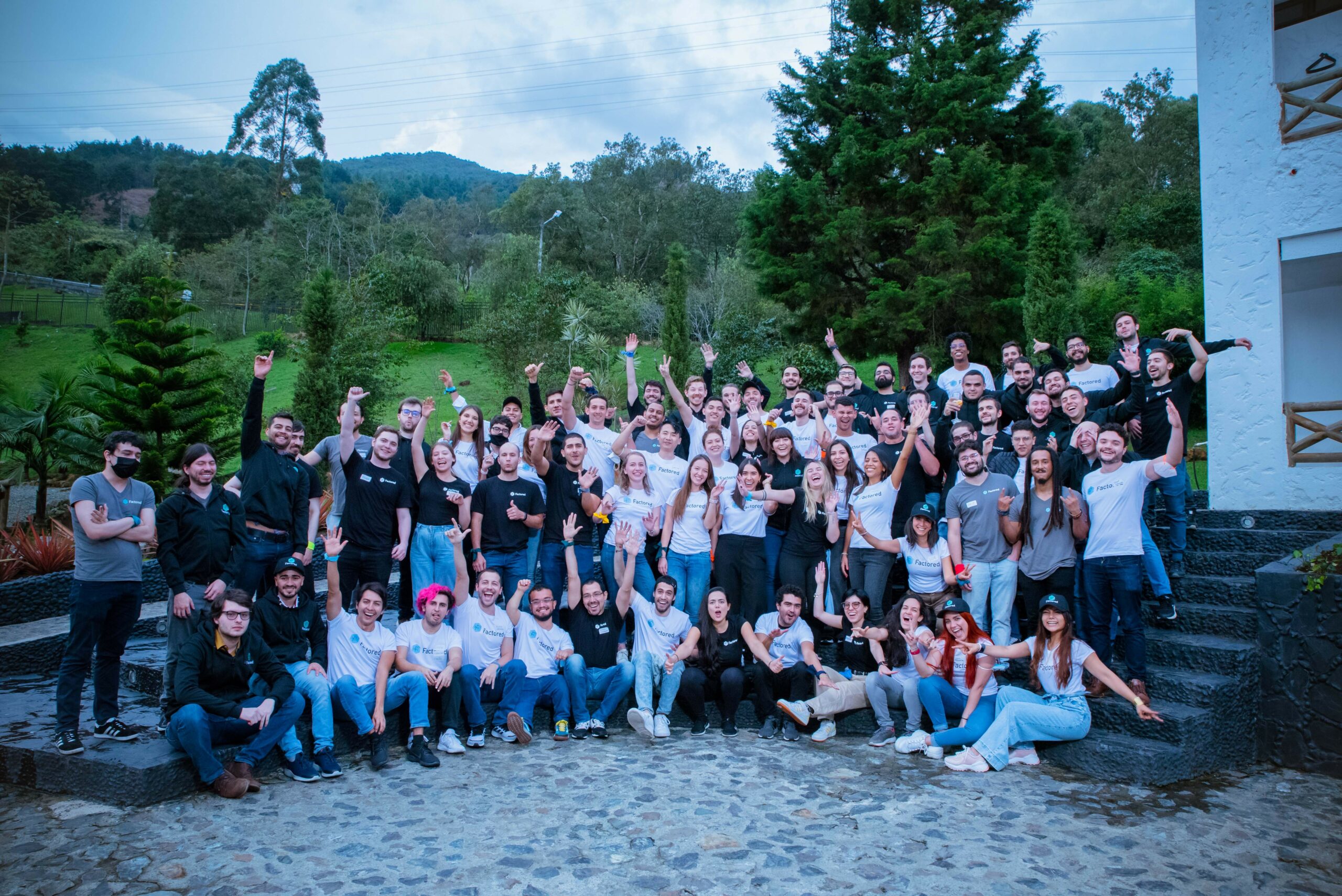
A portion of Factored’s growing team together in Colombia in 2021.
AIF: What was your experience like founding Factored with AI Fund?
IN: When you’re starting a company, especially as an experienced executive, it’s a very difficult decision to go from high-paying roles to taking no pay for a long time and eating microwave ramen while you get the company up and running. With AI Fund’s early investment and support, that risk was reduced. While I still had to take a significant pay cut (expected for any entrepreneur), I was still able to build the company without forgoing a salary for several months or years, making the risk of entrepreneurship a bit more palatable at this point in my career.
Another benefit of the venture studio model is the back-of-the-house work that helps you get started. In my particular case, something I found very, very valuable was the work of the finance and accounting team, getting us set up with accounting vendors, bookkeeping, and other services that make our operations easier, and allowed us to focus on more strategically important areas. Eva Wang has also been very helpful in assisting us with legal documents like stock grants and incorporation paperwork.
Most importantly, there are valuable opportunities to get feedback, share ideas, and do co-marketing with DeepLearning.AI and Andrew Ng, which really helps AI companies build their presence in the market. The brands are definitely a great differentiator for us, particularly as it relates to attracting talent and producing best-in-class training materials.
And last but never least, my fellow CEOs at the AI Fund are wonderful people. We all wrestle with many of the same things, and it’s been wonderful sharing this ride with them as well, and learning from and supporting each other.
AIF: How do your fellow portfolio CEOs help you in your company-building journey?
IN: People always say that being a CEO is a lonely job. That’s because at our level, we don’t have a boss telling us what to do every day, or giving us comforting feedback when we’re doing well. There are things that we struggle with that we can’t share with our team because we need to inspire them and not bring them down with our stress. So being able to share these problems with other capable and smart people who are going through similar challenges and growing their companies is wonderful.
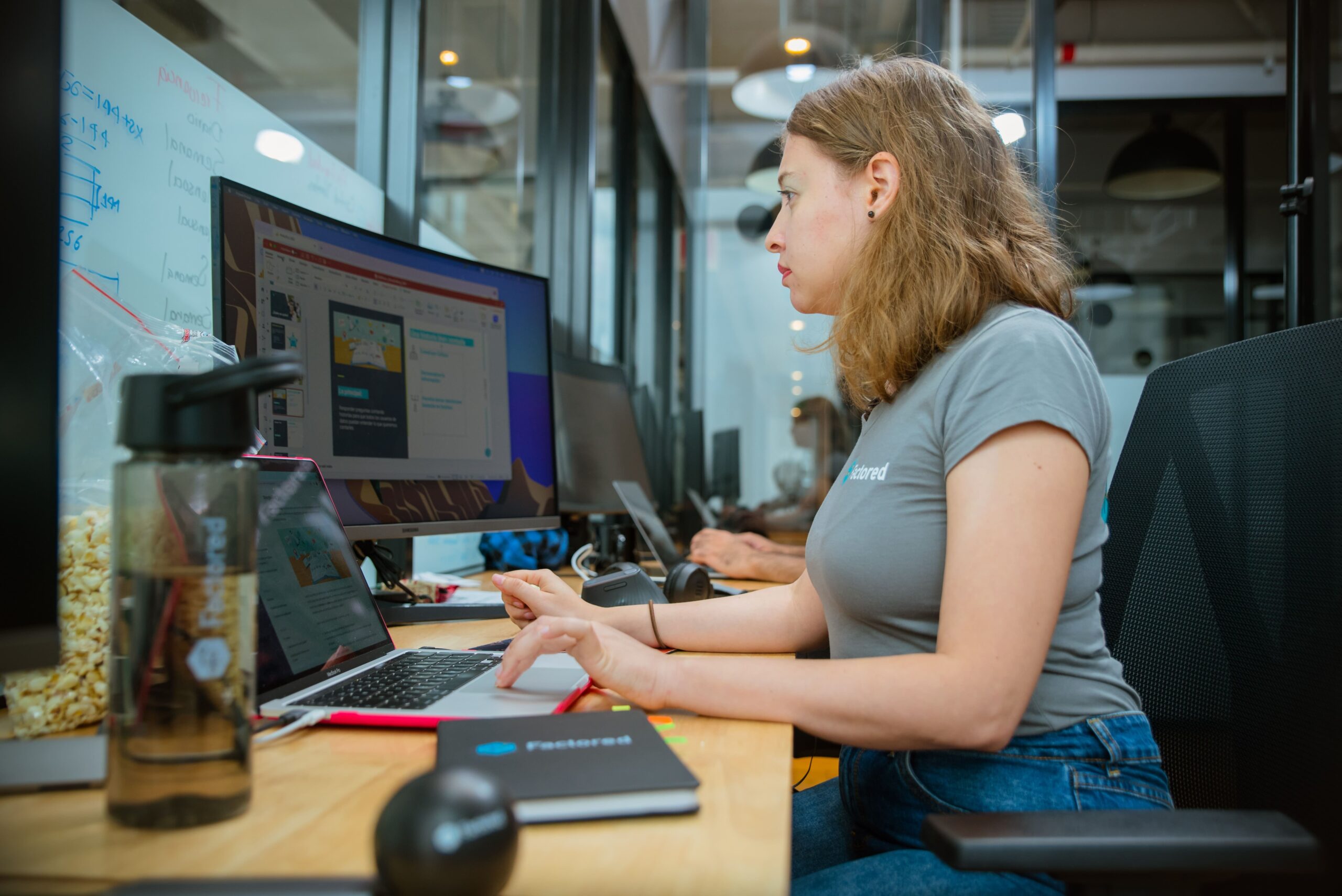
A Factored team member at work in their Colombia AI hub. Factored’s machine learning and data science experts serve a wide range of U.S. companies across industries like Fintech, insurance, mobile telecomms, healthcare, retail, and more.
AIF: What is a skillset that you believe all founders need?
IN: In the world of startups, you’re either building product or you’re selling. Nothing else matters much in the early days. I’m personally not building product because I’m neither an engineer nor a product visionary. So, the key role for me is selling, and when you sell, you must understand people and human emotions, incentives, and motivations. Understanding humans is the most important skill for leaders. In leadership, you can be the most brilliant technologist, but if you don’t understand how to motivate or incentivize people, you’re not going to get great results.
If you’re good at sales, you’ve learned how to incentivize people and how to motivate them, and that’s good because at a startup, you have to sell to everyone. You have to sell your idea to investors, to prospective employees, to clients and partners. You’re constantly selling.
AIF: How do you see AI moving humanity forward?
IN: AI is changing everything around us and it’s incredible for me to see how many different companies we’re working with in so many different spaces that are using AI in unique ways. Our clients are using AI to improve healthcare, democratize access to financial products and FinTech, and even to optimize marketing, logistics, transportation, and so much more.
So I’m generally an optimist. That said, I think leaders and society as a whole need to understand that automation will inevitably lead to worker displacement at some point. So we need to start thinking about a future where all humans are protected and where the benefits and productivity gains that AI brings are turned into benefits for mankind as a whole, not just for a lucky few. That’s going to necessitate socio-economic and political changes, and a new appreciation in the way that society currently values humans — our “value” to society needs to evolve from valuing humans as mainly workers, to valuing humans as fellow citizens, stakeholders, and owners of our shared experience.
AIF: What is something you read, or that a mentor told you and you never forgot?
IN: There’s a quote I always share with my teams. It’s by Jim Barksdale, CEO of Netscape, who said “If we have data, let’s look at the data. If all we have are opinions, let’s go with mine.”
It’s funny, but also very profound.
What I love about this quote is that it pays tribute to the value of data and data-driven decisions and the value of leadership in the absence of data. The best decisions we make as leaders combine a bit of our gut and experience with the available data.
Related Insights

How to win at enterprise sales for AI startups

Making mental health radically accessible: A conversation with Alison Darcy, founder and president of Woebot Health

Revolutionizing video for marketing teams: A conversation with Chris Yeh, CEO of ContentGroove

Democratizing podcast production: A conversation with Artavazd Yeritsyan, CEO of Podcastle
